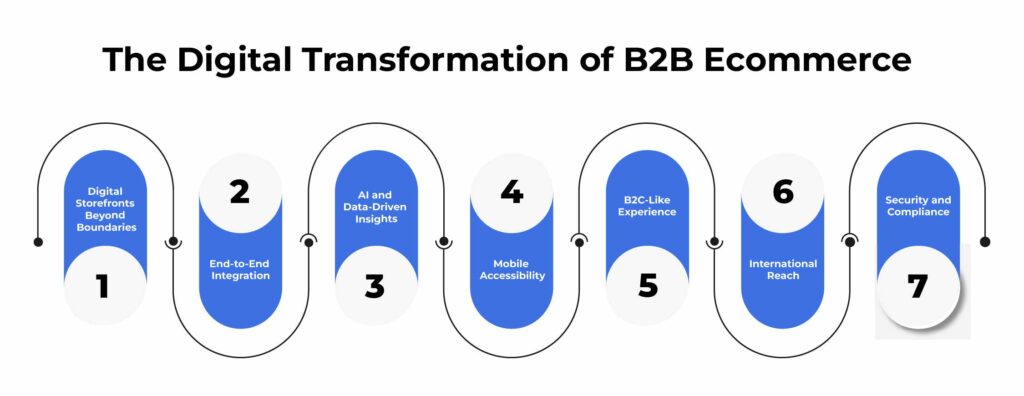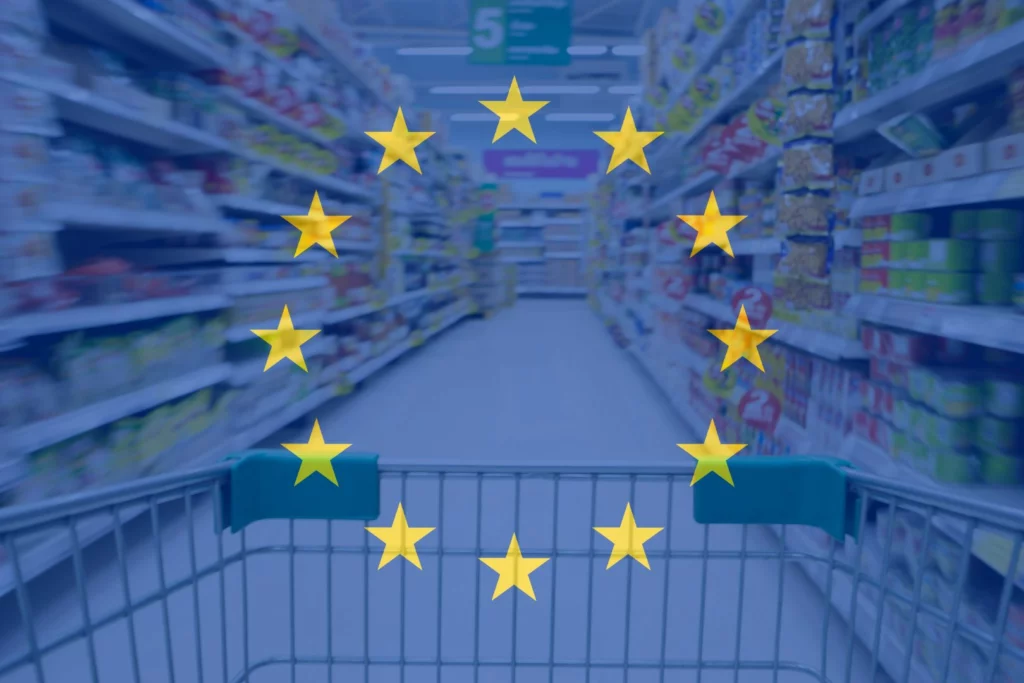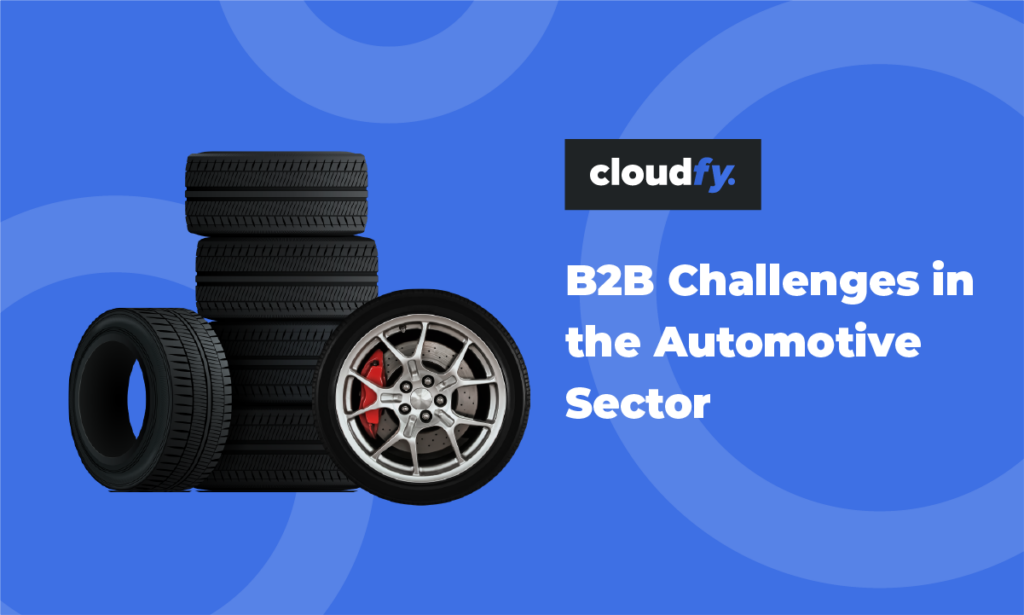The world of business-to-business (B2B) ecommerce is evolving at an unprecedented pace, ushering in a new era that promises to reshape the way industries operate, streamline supply chains, and empower a new generation of entrepreneurs. In this blog, we’ll explore how B2B ecommerce is making way for a new generation of business leaders especially with Cloudfy and Rob Williams and why this digital revolution is more than just a technological upgrade—it’s a profound shift in the way business is conducted.
Rob Williams, CEO of leading SaaS ecommerce provider Cloudfy is causing a stir in the B2B world this week. He believes business to business (B2B) ecommerce companies that have been in the shadow of business to consumer (B2C) ecommerce are now ready to shine. The reason is simple – the Millennial generation has come of age.
Rob Williams says: “B2B companies have been slower to adopt ecommerce, but it will turn out to be good news for many of them. Three quarters of these companies are now getting ready to replace their first generation ecommerce systems. Others are looking at B2B ecommerce for the first time. That means that they can take full advantage of our improved understanding of their Millennial customers and new models of delivery and service that will put them ahead of the field.”
Recent research shows that 73% of Millennials are involved in B2B purchasing decisions. Definitions vary, but Millennials are likely to have been born in the late 1970s to late 1990s. They have grown up with the internet and all the technology that now enables ecommerce.
Rob Williams says these Millennial buyers are looking for the same high quality user experience for their B2B purchases that they find in retail. Flexible payment options, personalized web content, and after-sales customer service are high priorities for modern B2B ecommerce customers.
Payment using credit cards, PayPal, and pay-over-time methods are likely to play an ever-increasing role in B2B purchases. Purchase orders, credit terms and flexible financing methods that have been standard selling tools for B2B will now need to be rethought for the new generation.
B2B buyers are focused on efficiency. Highly relevant personalized content will provide value and save time. Artificial intelligence (AI) can now deliver deep analysis and intelligent purchase recommendations based on what customers already own or provide additional data about products they are searching for.
B2B ecommerce sellers also need to make after-sales information and support a priority. Companies that provide online troubleshooting advice or information that helps customers quickly resolve issues will have a clear advantage.
B2B ecommerce sellers also need to make sure that online information supports the quotes and contracts offered by their sales force. They can go one step further and use their ecommerce site to empower their sales team with tools like mSeller.
Table of Contents

The Digital Transformation of B2B Ecommerce
B2B ecommerce has come a long way since its inception. Initially seen as a digitized extension of traditional procurement, it has now matured into a sophisticated ecosystem that leverages cutting-edge technology to enhance efficiency, connectivity, and customer experiences. Here’s how this transformation is paving the way for the new generation:
Digital Storefronts Beyond Boundaries
The new generation of B2B ecommerce platforms goes beyond mere websites. They are intuitive digital storefronts that offer an engaging user experience, akin to their B2C counterparts. These platforms facilitate seamless browsing, ordering, and personalized interactions, making business transactions smoother and more efficient.
End-to-End Integration
Modern B2B ecommerce solutions are not standalone systems but are integrated into the entire business ecosystem. They seamlessly connect with Enterprise Resource Planning (ERP) systems, Customer Relationship Management (CRM) software, and inventory management tools. This integration streamlines processes, minimizes errors, and enhances data accuracy.
AI and Data-Driven Insights
The new generation of B2B ecommerce leverages artificial intelligence (AI) and data analytics to provide valuable insights. Businesses can now make data-driven decisions, optimize pricing, and even predict customer behavior. This intelligence is invaluable for strategizing and staying competitive.
Mobile Accessibility
Accessibility via mobile devices is no longer a nice-to-have but a necessity. The new B2B ecommerce platforms are designed with mobile users in mind, catering to the on-the-go nature of modern business.
B2C-Like Experience
B2B buyers today expect a B2C-like experience. They want user-friendly interfaces, personalized recommendations, and swift order processing. The new generation of B2B ecommerce platforms meets these expectations, enhancing customer satisfaction and loyalty.
International Reach
The digital nature of B2B ecommerce eliminates geographical barriers. This allows businesses to access global markets, diversify their customer base, and explore new growth opportunities.
Security and Compliance
As cyber threats evolve, the new generation of B2B ecommerce platforms places a strong emphasis on security and compliance. Robust encryption, authentication, and compliance measures ensure data safety and regulatory adherence.
What Rob Williams Says?
Rob Williams says: “Our B2B clients often have large product portfolios, detailed pricing structures and complex distribution processes. Their big hurdles have been flexible pricing, accurate product descriptions and integration with business systems.”
“To meet their needs we were building custom B2B sites using a variety of technologies, languages and platforms. That can be expensive and time-consuming and sometimes it felt as if we were reinventing the wheel. What our customers were really looking for was a one-stop service that included their platform, hosting, support and security. We saw a gap in the market and created Cloudfy in the Cloud to meet their needs.”
“Efficiency and ease of use are the leading trends for the new generation of online B2B buyers, along with mobile ordering and payment. Cloudfy is an example of a 21st century Cloud-based B2B ecommerce solution delivering a level of sophistication that makes online purchasing easier for trade buyers. It’s far better than waiting for a printed catalogue to arrive or a sales rep to call. There are also great tools like Punch Out that let internal systems work with ecommerce platforms to streamline processes.”
“B2B companies that are ready to adapt their marketing and sales strategies to Millennial expectations and demands are likely to outperform their competition. There are figures showing that the scale for the B2B market is likely to be two to four times larger than the retail sector very soon. That’s why so many B2B businesses are now looking to take advantage of this $1.13 trillion ecommerce opportunity.”
What makes Cloudfy the right approach for next generation B2B ecommerce?
Cloudfy has an advanced application programing interface (API) to enable process integration with the back office and pre-built interfaces for leading business systems like Sage, SAP and MS Dynamics.
Increased sales are supported with efficient order processing, ease of use including features such as unique customer logins and easy round-the-clock online access.
Costs can also be reduced with streamlined and automated processes. A customer can place an order in the middle of the night. As long as the order meets certain criteria such as sufficient credit and available stock, it can be processed in seconds and be waiting for fulfillment first thing in the morning.
Rob Williams says: “Since Cloudfy is a Cloud-based service a new ecommerce site can be launched in weeks rather than months and maintained with a monthly subscription, with minimal capital costs.”
“We listen to our customers and, using our own experience, we are developing new features all the time. One of the unique things about Cloudfy is that it is multi-tenanted, so when we develop a new solution, everyone gets it – it’s evergreen.”
B2B ecommerce is ushering in a new era of business that empowers a new generation of entrepreneurs. It’s not just about adopting technology; it’s about redefining business practices, enhancing customer experiences, and democratizing commerce. The digital transformation of B2B ecommerce is leveling the playing field, allowing startups and small businesses to compete on a global scale, make data-driven decisions, and stay agile in a rapidly changing market.
As the new generation of business leaders embraces these opportunities, we can expect to see innovative solutions, niche market domination, and a continued shift towards a more connected, efficient, and empowered B2B ecommerce landscape. Whether you’re an established business looking to evolve or an entrepreneur ready to embark on a new venture, the world of B2B ecommerce offers boundless potential for growth and success in this digital age.
Schedule a demo now to know more about Cloudfy B2B ecommerce platform!
Frequently Asked Questions
B2B ecommerce empowers a new generation of entrepreneurs by offering accessibility, global reach, data-driven insights, and cost-effective solutions. It levels the playing field and allows startups to compete on a global scale.
B2B ecommerce is evolving to provide a B2C-like experience, including flexible payment options, personalized content, and after-sales customer service. It caters to the efficiency-focused nature of Millennials.
AI is crucial for providing deep analysis and intelligent purchase recommendations based on customer behavior and product data. It enhances the customer experience and helps businesses stay competitive.
Cloudfy offers a Cloud-based B2B ecommerce platform that is agile, scalable, and cost-effective. It enables rapid deployment, efficient order processing, and easy access, making it suitable for businesses of all sizes.
Cloudfy stands out due to its multi-tenanted nature, ensuring that all users benefit from continuous updates and innovations. It offers seamless integration with business systems, advanced API capabilities, and an evergreen approach to features and improvements.






